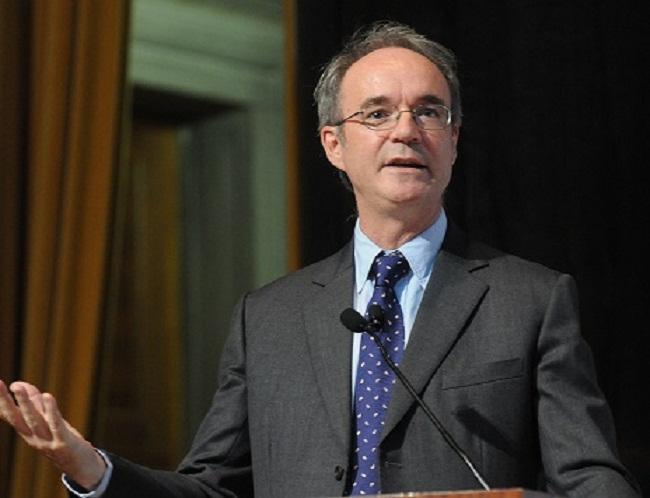
A strategy that allows long-term, passive investors to hedge climate risk will be outlined by one of the keynote speakers at this year’s Paul Woolley Centre conference in Sydney.
Short-termism in financial markets is a major problem, and one illustration has been the failure to price in the risks of climate change, says Columbia University’s Professor Patrick Bolton. He and collaborators Mats Andersson and Frederic Samama have developed a climate risk hedging strategy, in response.
“We propose a simple, dynamic investment strategy that allows long-term passive investors to hedge climate risk without sacrificing any financial returns,” Prof Bolton says.
“Our hedging strategy goes beyond a simple divestment of high carbon footprint stocks. This is just the first step. The second step is to optimise the composition of the green portfolio so as to minimise the tracking error with the reference benchmark index.
“We show that tracking error can be almost eliminated, even for a green index that has 50 per cent less carbon footprint. This green index has so far outperformed the benchmark index, in effect allowing investors to hold a ‘free option on carbon’,” he says.
'The day when CO2 emissions are priced,
the green index will outperform the benchmark'
“As long as the introduction of significant limits on CO2 emissions is postponed they are essentially able to obtain the same returns as on a benchmark index. The day when CO2 emissions are priced, the green index will outperform the benchmark.”
The conference will also include a special session on the federal government’s Financial System Inquiry (FSI), which is due to make its final report the following month. This session will feature research economist and commentator Professor John Quiggin of the University of Queensland and Associate Professor Peter Docherty of UTS Business School.
“The Global Financial Crisis, which brought the economy to the edge of meltdown in late 2008, came as a total surprise to most of those responsible for managing the global macro-economy and financial sector,” Prof Quiggin says. “This brought new attention to the concept of ‘Black Swans’ – or in more prosaic terms, unforeseen contingencies – such as the collapse of derivatives markets.
“How, if at all, is it possible to guard against unforeseen contingencies, given that, by definition, we do not know when or how they will arise, or what their effects will be?
“My argument is that regulatory systems can be made more robust by imposing limits in financial innovation. The problem, then, is to distinguish between beneficial and harmful financial innovations. This is a difficult, but not impossible task.”
Regulators Dr Luci Ellis from the Reserve Bank of Australia, Dr Giovanni Dell’Ariccia from the International Monetary Fund and Dr James Vickery from the Federal Reserve Bank of New York will also speak at the conference.
Professor Ron Bird, director of the PWC, which is part of UTS Business School, will present his latest research on how to identify the better fund managers.
'The best managers are
a small and moving target'
Past performance is not a reliable indicator so his research seeks to pin down the characteristics of successful managers. “This is a different way of trying to differentiate between good and bad managers,” Prof Bird says.
“The best managers are a small and moving target – the manager with the best results last year may not be the manager with the best performance this year,” he says. “So, rather than looking at past performance, we would be better off looking at the characteristics of successful managers and seeking those out.”
His research indicates, for example, that confident managers who are the first to take positions in stocks do better; and those who stick to their positions rather than following the herd when recommendations change also do better.
Professor Susan Thorp, who holds the chair of Finance and Superannuation at UTS, will present research looking at why people set up self-managed super funds, what they do differently inside a DIY fund, and whether they are achieving their goals.
Attendance at the PWC conference is by invitation only and limited to about 100 people. Industry practitioners and academics who would like to attend should email Yvonne.Gray@uts.edu.au.
The conference will be held at the UTS City Campus, in the Aerial Function Centre, Building 10, 235-253 Jones Street, Ultimo.
To read about last year’s conference, go to https://www.uts.edu.au/about/uts-business-school/finance/news/are-capital-markets-efficient-really
Photo: Professor Patrick Bolton, Columbia Business School

